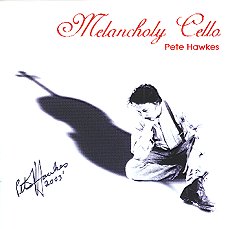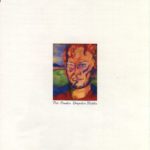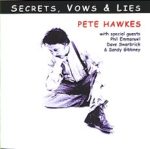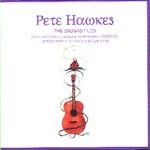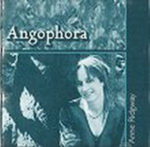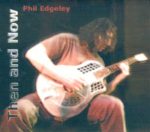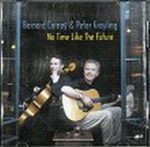Description
CD Review by Richard Narbutas
Pete Hawkes has had a busy life.
A luthier, a mathematician, and a prolific composer and performer, in 2012 Hawkes received the MUSICOZ Legend award.
It seems music took Hawkes to many places, he even spent some time in the USSR and China, inciting a radical musical revolution among the proletariat by simply playing jazz.
Consequently, his China visit was unexpectedly cut short.
Terrible stuff apparently, jazz.
Lawyer, Geoffrey Robertson, once quipped something along the lines of “you think the music’s going to take you somewhere, and then it doesn’t”.
But it did take Hawkes home.
And in “No Remedy for a Sad Wednesday”, just a few passages evoke a nod to China.
In this album, recorded after his return to Oz, Hawkes has created a work of depth and feeling.
He is person of chromesthesic ability, that is, sees sound in colours.
One imagines Hawkes orchestrating a personal kaleidoscope of colour from the interplay of instruments.
I worked out that this CD is not necessarily true to its name; … not predominantly a cello performance.
Other musicians play the cello, Hawkes’ instrument is guitar.
But why let semantics get in the way of beauty?
This is music that rewards your attention, music that carries you to your place of inner blue sky.
Sensitive arrangements of strings and clarinet create a poetry of delicate melodies.
Beauty indeed.
We begin with a reminiscence of getting pissed and playing romantic minor chords with Gypsies on the tube station in Moscow.
Oh, those Russians!
That said however, the tone of this collection soon becomes rather sombre, and the sleeve cover notes outline some of the artists feelings at the time.
Perhaps at some stage of life we may have stumbled through that bleak existential landscape of Jackson Browne’s, “Everyman”, trying our “ifs” and “maybes” to find “the” way.
The accompanying sleeve notes for “Quiet Desperation” offer another verse, proposing that life in urban Australia is also one of quiet desperation.
Hawkes’ concept of a “tranquillity illusion” is no less poignant today as people eagerly connect so they can ignore what’s really bugging them.
Emotional “Winter” is a powerful piece, made the more wistful with hushed lyrics.
It provokes thought on a complicated subject and serves as a prelude to a dreadful realisation – will we, too, be cast adrift when our ship founders?
Can such a thing really happen?
Melancholy Cello was recorded in most part at Blue Bear Studios ACT, an enterprise of Ian Blake, who also provides clarinet on “Ada’s Favourite”.
The cellists are Paul Stender, William Martina and the one and only “Sharlette”, with Irene da Zilva, Sarah Bloustein and Sandy Gibney playing violin.
Hawkes has achieved lasting recognition of his efforts, his works preserved at the National Film and Sound Archive of Australia.
He has had productive associations with many artists, Dave Swarbrick (of Fairport Convention) and other icons of the British Folk Music scene, not to mention a Gothic Rock (?) album with Australian Phil Emanuel.
Hawkes has a staggering 1200 recordings to his name!
As Carson the Butler pronounces pompously in Downton Abbey, “the business of life is the acquisition of memories, in the end that’s all there is.”
Close your eyes as you listen to the melancholy cello at the end – just remember what an Emotional Winter looks like.
Will you go gentle into that Goodnight?
